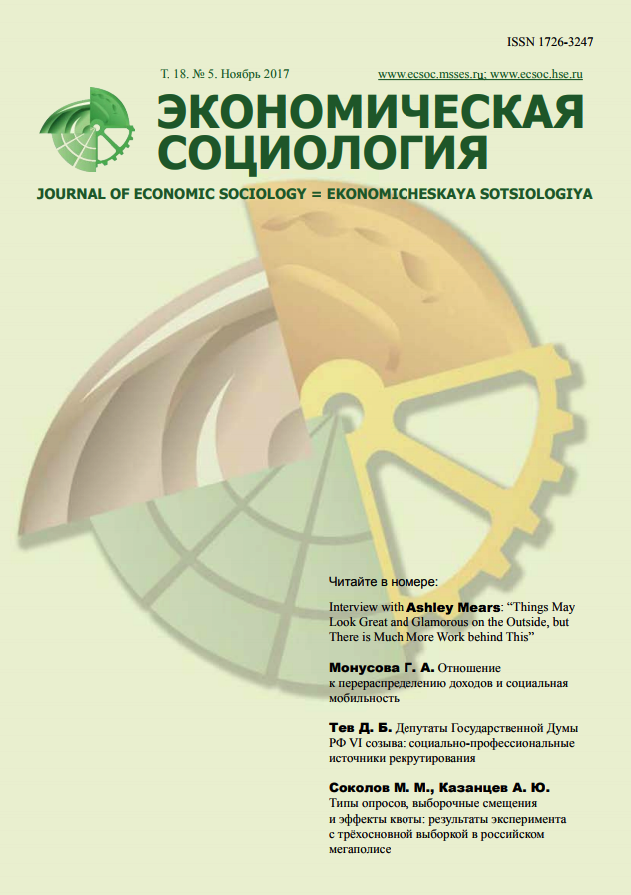Redistributive Preferences and Indicators of Social Mobility
Abstract
The aim of the paper is to explore the connection between redistributive preferences and various indicators of social mobility across countries. In particular, it addresses the following set of questions: How are objective and subjective mobility related to redistributive preferences? How are redistributive preferences connected with mechanisms of mobility and feelings of fairness? The author uses large cross-country datasets from the ISSP to analyze connections between redistributive preferences and objective and subjective mobility on different levels (intra and between countries). Using regression analysis, the author finds that objective and subjective mobility influence redistributive preferences in different ways. Objective mobility has only weak effects on redistributive preferences, whereas the connection between subjective mobility and the demand for redistribution is much stronger and more stable. Cross-country analysis shows that the connection between redistributive preferences and subjective mobility is higher in transition economies than in developed countries. In addition, the author finds that preferences for redistribution are strongly linked to how transparent and fair mobility is. If people feel there is equality in opportunities, their demands for redistribution are significantly lower.













